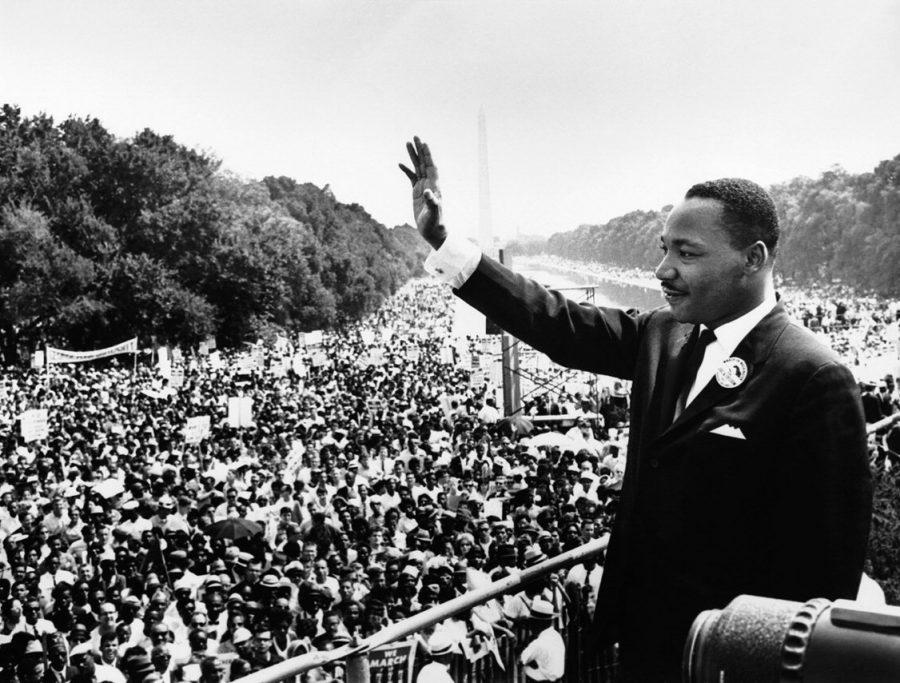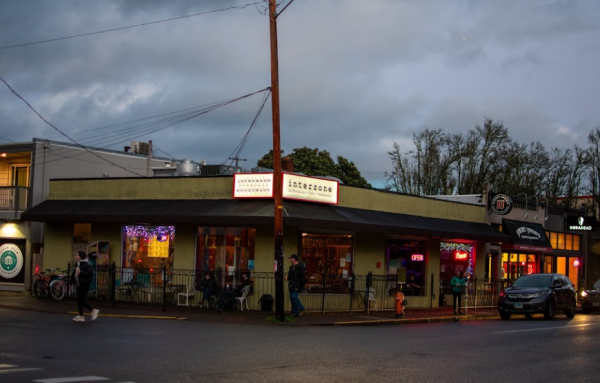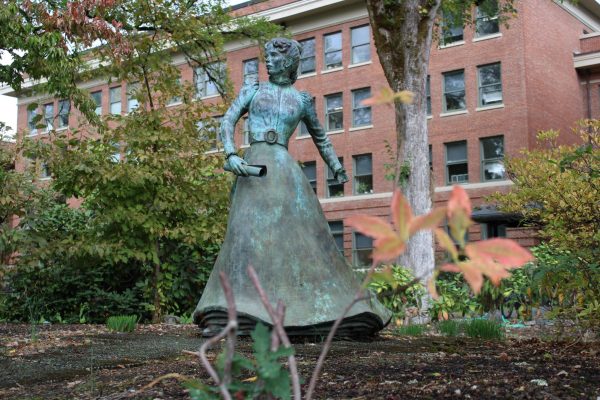OSU celebrates the legacy of Martin Luther King Jr.
January 18, 2019
Martin Luther King Jr. is remembered as one of the most influential civil rights leaders in American history. From humble beginnings in his local baptist church, MLK gained fame partly due to his public speaking skills and his message of spreading love in the face of hate and ignorance. He quickly became a leader in the movement for African American civil rights who peacefully protested racial discrimination at the federal and state level.
Along the journey to the signing of the Civil Rights Act of 1964, MLK led the Civil Rights Movement through monumental moments, like the 1963 march on Washington that gathered a crowd of over 250,000 people who witnessed the famous “I Have A Dream” speech. During his lifetime, he was awarded the Nobel Peace Prize in 1964. After his death, he was awarded the Presidential Medal of Freedom in 1977 and the Congressional Gold Medal in 2004.
To remember the legacy of MLK, then President Ronald Reagan signed the national holiday into law in 1983. Three years later, the first MLK Day was recognized. It took several years after this day, but eventually MLK Day became a nationally recognized holiday in all 50 states in the year 2000.
Jan. 21, 2019, this upcoming Monday, will be only the 19th year that this holiday will be recognized by all 50 states.
Here at Oregon State University, MLK Day is the longest running annual event that has a focus on social justice and transformative change, according to Brandi Douglas, the assistant director of outreach at the office of institutional diversity.
From Jan. 19 through the 25, OSU is hosting different events to celebrate the legacy of Dr. King.
“A few of the highlights of this year’s celebration include the Martin Luther King, Jr. Day of Service on Saturday, Jan.19, an evening with three-time GRAMMY Award winning artist Angélique Kidjo on Saturday, Jan. 19 and of course the Dr. Martin Luther King, Jr. Peace Breakfast, Keynote, and March on Monday, Jan. 21,” Douglas said. “This year’s keynote speaker is Sybrina Fulton, mother of Trayvon Martin, author and activist.”
Douglas stated that there are three main objectives of the upcoming events.
“The first is to learn about and reflect on the life and legacy of Dr. King. Second, is to participate in an impactful, inclusive, and engaging celebration of his life; and lastly, to collaboratively learn about, reflect on and carry on the legacy of Dr. King in a way that is relevant to today,” Douglas said.
Dr. King left in his wake a legacy of non-violence in the face of violence. Taking after the principles of nonviolent protest from the Indian civil rights leader Mahatma Gandhi, Dr. King inspired a generation to spread love where there is none. He proved to a nation that through peace, you can achieve monumental political change.
Dr. King shared with us a dream where one day people will not be judged by the color of their skin, but by the content of their character. A dream that, according to Douglas, has not yet been fully fleshed out.
“When we as a university community have events like this, we are recognizing those locally, nationally and globally who have taken up Dr. King’s mantle and we are reflecting that there is still much work to do,” Douglas said.







